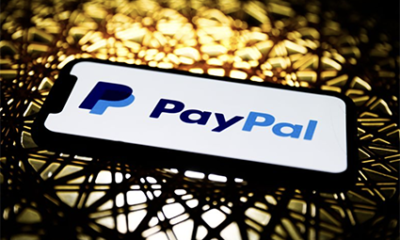By Jason Cherubini
The theory of valuation is relatively straightforward: You discount the company’s expected future cash flows by the investors’ required rate of return. In practice, even for well-established firms, this can be a highly complex and subjective process due to different valuation models, techniques, and subjective variables. When it comes to new companies and startups, without historical data and plans for rapid growth, technical valuation becomes more of an art than a mathematical process.
So, how can startup founders and investors effectively value these new ventures? They must choose the valuation models and techniques that are available and best suited for the situation at hand.
A common expression when discussion valuation is “A business is worth what someone is willing to pay for it,” and for many startups seeking to raise funding, this is true. If the only investors willing to invest tell you that your startup is worth $1million, you will most likely have to accept that as the market valuation. But just as a savvy investor may place this market valuation below what you expect, an uninformed investor (generally within a friends & family round) may overpay. In both cases, it is essential to note that future valuations may not reflect this initial valuation.
Although the idea that “a business is worth what someone is willing to pay for it” is sound, it also must correlate with the idea that “a business is worth what you are willing to get for it.” Startup founders do not meet with potential investors without any information or expectations. With the information, projections, and expectations, founders give investors that they can determine valuations. So, founders should develop their process for valuing their company to supply to investors. This doesn’t mean that the investors will agree with the valuation that the founders supply, but a well-thought-out and supported valuation will aid the founders in the investment negotiations.
Most startups have a problem when it comes to valuation because they don’t have a history of financial performance on which to base the valuation. All of the variables that will be used are forecasted and thus subjective. It is up to the entrepreneur to support all of their estimates and forecasts and develop a process for valuing the company based on what information is available.
Most startups can benefit from adopting a three-prong approach to valuation:
1. Valuation based on Discounted Cash Flows
One of the cornerstones of equity valuation is discounting future cash flows to achieve an intrinsic value. This requires forecasting future cash flows, which is extremely difficult for startups since there is no historical data upon which to base the forecasts. It is also difficult to adequately determine the risk of a startup when setting a risk-adjusted discount rate. Despite the difficulty involved, investors will want to see projected future earnings and will use this information to determine a valuation. Startup founders should have forecasts for revenue and profits with as much support as possible. It is often worth it for founders to run multiple scenarios altering their forecasts and discount rates to understand a potential range of valuations.
2. Valuation based on Comparable Companies
In addition to the traditional discounted cash flow, estimates for a startup’s value can be determined by looking at the valuation of similar companies. These similar companies may have historical financial performances on which their valuation is based, or they may have established a market valuation based on previous investment rounds. While this valuation method will not be tailored to all of the individual factors affecting your startup, it will give evidence supported metric in determining a value.
3. Valuation based on Multiples Analysis
Similar to the use of comparable companies, multiples analyses can be used to set a valuation on a startup by looking at other companies. In determining a multiple to use, a company’s market value is expressed as a multiple of a base number. For example, The traditional P/E ratio is Price to Earnings, a multiple that represents the market value as a multiple of the earnings. This multiple can then be used to determine the startup’s value based on a known or forecasted base number. If we know that a similar company is valued at $10million and had earnings of $2million, it would have a PE multiple of 5x, or it is valued at five times its earnings. If we forecast that our profits will be $1million and assume that the multiple holds, then our firm’s value would be $5million.
No single method of valuation will work perfectly for a startup, so it is suggested that a combination of methodologies and a range of variables are used. This methodology of multiple valuations should give a clearer understanding of how the company should be valued.
When valuing a startup, it is easy for founders to tweak all of the variables to get the maximum valuation possible. Still, it is important to note that investors will be tweaking variables looking for the most conservative valuation. Be careful about overvaluing your startup with overly optimistic assumptions; it will only make your life more difficult in defending your valuations when pitching to investors.
It is said that business valuation is more of an art than a science, and nowhere is this truer than the valuation of startups. Startup founders should understand the process of business valuation and enter into any negotiations with investors having already gone through an internal valuation process. By having a robust understanding of valuation models based on multiple methodologies across various variables, you are more likely to come to a fair valuation for investment.
About the author
Jason Cherubini, CPA/MBA/CMA/CGMA, is a business professor, entrepreneur, and founder of Seraphim Associates International, a management consulting firm specialising in assisting startup ventures. He can be found across social media: @jasoncherubini
Image by Markus Winkler


































